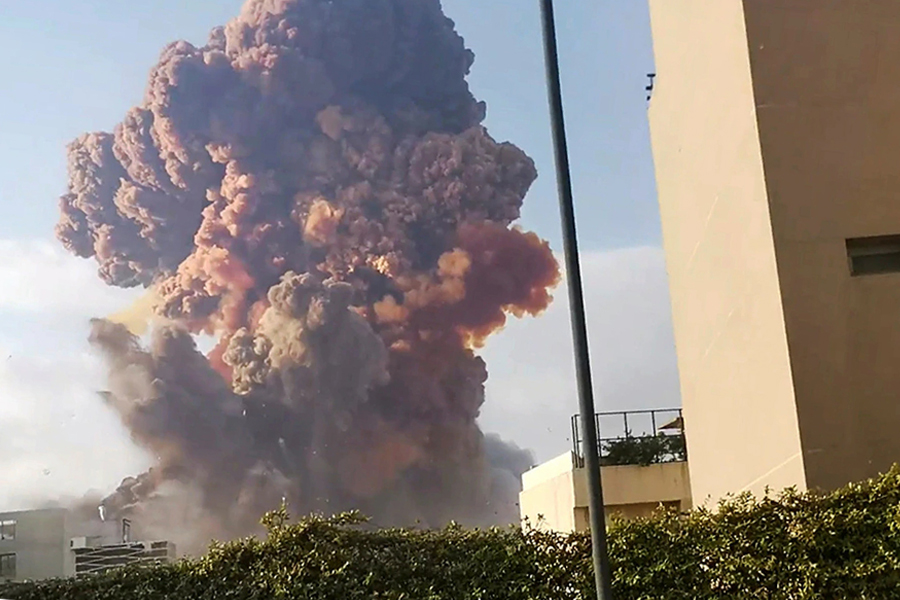CCA grieves for victims of explosion in Beirut, Lebanon
 A visual of the recent explosion in Beirut. Photograph by Karim Sokhn.
A visual of the recent explosion in Beirut. Photograph by Karim Sokhn.
CHIANG MAI: The Christian Conference of Asia (CCA) has expressed its deep sympathy for the victims of the explosion in Beirut and the victims’ families.
A massive explosion rocked Beirut on Tuesday, 4 August 2020, flattening much of the city's port and damaging buildings across the Lebanese capital. It has killed more than 100 people and left around 4,000 injured, with many still feared trapped under rubble.
In a message of comfort and solidarity issued by the General Secretary of CCA, Dr Mathews George Chunakara said, “We share the grief of the Lebanese people and uphold the victims and families in our prayers. During this critical time in Lebanon, our thoughts are with the affected people and we stand in solidarity with those who are experiencing this painful situation and living amidst fear and deep anxiety.”
The cause of the blast was not immediately known; however, preliminary investigations revealed that the explosion was not a premeditated act, but was caused due to the ignition of 2,750 metric tonnes of ammonium nitrate, a highly explosive chemical intended for use in the manufacturing of fertilisers and bombs.
The chemical, stockpiled through confiscation, had been stored in the Beirut port warehouse for over six years without any safety measures, endangering the safety of the people residing in the vicinity of the Beirut port.
The explosion that rocked Beirut comes at an unpropitious time for Lebanon as the pandemic-related restrictions have exacerbated the country’s deep and long-running financial crisis. Before the COVID-19 lockdown, the Lebanese government was also dealing with anti-government protests against the country’s ruling political class and endemic corruption.
The Lebanese economy has been in a free fall for about a year, and as the Lebanese currency has plummetted, food prices have soared. Beirut’s main port, now completely damaged, was vital for the import of much of Lebanon’s food stocks, grains, and fuel. This has spurred fears of widespread food insecurity in the short term, as all the grain stored at the port has been destroyed.
The Catholicosate of CCA’s member church, the Armenian Orthodox Church in Iran, which is part of the Armenian Orthodox Church, Holy See of Cilicia, is headquartered in Antelias, Lebanon.
The Executive Committee of the CCA met in Antelias, Lebanon, for its annual meeting in July 2018 and was hosted by the Catholicos of the Holy See of Cilicia. The meeting of the CCA Executive Committee held in Lebanon was an ecumenical milestone as it took place outside of the ‘traditional orbit’ of the Asian ecumenical movement.
The full text of the CCA General Secretary's message of comfort and solidarity on the explosion in Beirut, Lebanon, can be accessed here.










